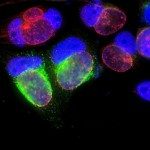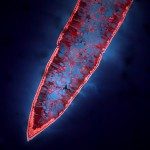Lien vers Pubmed [PMID] – 19383140
BMC Microbiol. 2009;9:75
Chlamydiae are obligate intracellular pathogens that possess a type III secretion system to deliver proteins into the host cell during infection. Small molecule inhibitors of type III secretion in Yersinia, termed INPs (Innate Pharmaceuticals AB) were reported to strongly inhibit Chlamydia growth in epithelial cells. In this study we have analyzed the effect of these drugs on bacterial invasiveness.


